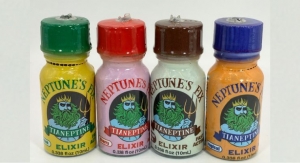Julie Dennis04.01.10
The nutraceuticals industry is continuing to evolve amid factors that either support, or possibly threaten its growth. Overall, for the estimated $25 billion U.S. dietary supplement industry, the prognosis is good. Very good.
In fact, 65% of adult Americans (approximately 150 million) label themselves supplement users, according to a 2009 survey conducted by Ipsos-Public Affairs for the Council for Responsible Nutrition (CRN), Washington, D.C.
Despite the troubled economy, this burgeoning community of supplement users ushered in an estimated 6% overall growth for nutraceuticals in 2009, a year that was difficult, at best, for many industries and individuals. Even more impressive, dietary supplements grew 10% in the mass market, according to figures from Nutrition Business Journal (NBJ), Boulder, CO. There was also some surprising strength in the practitioner channel, according to Patrick Rea, publisher and editorial director, NBJ, who said this sector returned to double-digit growth in 2009 and hovered between 10-15%.
“Of course economic conditions of the last several years are driving this even more so now because folks are losing their jobs, their insurance coverage, they can’t afford prescription medications, they can’t afford doctors visits—so they’re trying to find other more affordable ways of staying healthy and the sales numbers show that,” said Andrew Shao, PhD, CRN senior vice president, Scientific & Regulatory Affairs.
Also supporting this growth is the “graying of America,” the maturing Baby Boomers ages 42 to 60, totaling an estimated 78 million people in the U.S. According to the latest U.S. Census Bureau analysis, Boomers are mostly white, married, educated and employed, and they want to remain as healthy and vital for as long as possible.
At the same time, Dr. Shao noted, “The healthcare system is letting them down, the cost of healthcare is continuing to rise, and consumers are more and more interested in taking control of their health and are empowered to make some of these decisions on their own.”
And it’s not just the Boomers flocking to dietary supplements, it’s also their kids, those known as Gen X and Gen Y, who are discovering nutraceuticals but with a slightly different focus—they put more emphasis on appearance (hair, body shape, clear skin and a bright smile), as well as increased energy.
Regardless of generation, for the 65% of Americans who already label themselves supplement users in the CRN survey, 27% have changed their purchasing habits in the following ways:
• 59% are purchasing fewer supplements as a means to save money
• 31% are now purchasing less expensive brands
• 26% have been purchasing store brand supplements
• 23% rely on coupons and other value-added promotions
• 22% only buy supplements when they are on sale
• 5% are purchasing more supplements to maintain health
• 4% have stopped purchasing supplements because of the economy.
Regulatory Bru-Ha-Ha
First up at the regulatory table is the continued implementation of the much-lauded Good Manufacturing Practices (GMPs). Initially issued by FDA in June 2007, the rules require that all manufacturers produce quality assured, unadulterated, properly labeled products.
Implementation of the GMPs is rolling out in three stages depending on the size of the manufacturer. First stage: large companies with more than 500 employees needed to be compliant by June 25, 2008; second stage: companies with 20 to 500 employees needed to be compliant by June 25, 2009; final stage: companies with less than 20 employees have until June 25, 2010 to be compliant.
“It’s very positive and very important that we as an industry have GMPs that address the quality issues unique to dietary supplements. We want to see this out there and implemented,” said Daniel Fabricant, PhD, vice president, Scientific & Regulatory Affairs, Natural Products Association (NPA), Washington, D.C., adding that, “it gives consumers more assurance in the products they’re using.”
As a matter of fact, 84% of adult Americans remain confident in the safety, quality and effectiveness of dietary supplements, representing the highest rating in confidence since CRN started conducting its consumer survey in 2000.
Consumer confidence will likely continue to rise as they continue to hear more about GMP regulations and enforcement actions, and therefore be assured that “contrary to what you may hear in other places, the FDA is actively regulating the manufacturing of these products,” said CRN’s Dr. Shao.
But there may be a downside to the implementation of GMPs. Some experts predict the estimated cost of upgrades and maintenance to comply may put smaller companies out of business. Only time will tell.
On the other hand, many other manufacturers “may stand to thrive in the environment of stepped up enforcement of the regulation because they are in compliance. For the handful of companies that have ignored the regulation, and haven’t taken steps to implement the changes to be in compliance, this is going to cost them,” said Dr. Shao. “For manufacturers that have been doing their due diligence all along and have been complying with the regulations even before they were issued, this will be just a minor adjustment.”
In other regulatory developments, also rolling out in 2010 are new guidelines for the use of endorsements wherein testimonials will be held to the same standard of substantiation of reliable scientific evidence that label claims are held to.
Also, the FDA and FTC will continue developing their cooperative efforts and supporting each other on issues of mutual concern, “which shouldn’t be a surprise to anyone because both agencies are strapped for resources,” said Dr. Shao, adding that the two are trying to maximize their resources by working together and “that’s good for the industry and good for consumers.”
And if past actions are any indication, then the FDA and FTC will maintain their focus on issues posing the highest risk for the largest number of people, including disease claims, immunity and most recently in many people’s memory H1N1 flu.
Meanwhile, companies continue to integrate the new law for Adverse Event Reports (AERs), which are confirming what many consider common knowledge in the dietary supplement industry. “When you do a side by side comparison with pharmaceutical drugs you really see much less, significantly less, serious adverse side effects then what you see on the pharma side, and that’s what we’ve known all along,” said Mr. Fabricant.
Dr. Shao concurred that many in the industry anticipated that there would be “relatively few serious adverse effects occurring from dietary supplements. We stated all along that this law would actually show that in the long run supplements are safe.”
Looking ahead, the industry has already been dealt its first legislative wild card of the year—the proposed S.3002 “Dietary Supplement Safety Act,” introduced in February.
While the bill was initially introduced by Senators John McCain (R-AZ) and Byron Dorgan (R-ND), in early March Sen. McCain rescinded his support altogether.
In a letter from Senator Orrin Hatch (R-UT) to Sen. McCain, Sen. Hatch asked that they work toward “full enforcement of the existing laws…so Americans will have uninterrupted access to safe dietary supplements and bad actor companies are removed from the market immediately.”
This bill was largely drafted as a response to the recent issues in sports nutrition and supported by the U.S. Anti-Doping Agency (USADA), the American College of Sports Medicine (ACSM), as well as several pro and amateur sports organizations, including Major League Baseball (MLB).
“It seems to be written by folks who are not familiar with food and drug law and don’t realize how tightly supplements are regulated and how much supplement manufacturers have to do. I think the key here is that they are just uninformed about the industry,” said Mr. Fabricant, adding that this “was brought up by the issue of sports and the failures with their drug testing regimes. If we’re going to address that, then it should be addressed appropriately and shouldn’t be masqueraded or disguised as an attack on DSHEA.”
The bill proposed to amend parts of DSHEA, requiring dietary supplement facilities to register name, address and all trade names as well as compile a list of all dietary supplements, “manufactured, packaged, held, distributed, labeled or licensed by the facility.”
As well, New Dietary Ingredients (NDIs) marketed in the U.S. prior to October 15, 1994 would no longer be exempt from NDI requirements and minor, not just serious, adverse events would need to be reported, creating an extra burden for both manufacturers and FDA, but with questionable benefit.
Detractors say the bill threatened to erode aspects of DSHEA and in fact, according to the Save Our Supplements website, “if this bill becomes law your healthcare choices will be drastically reduced and many of the supplements available today will become illegal.”
As soon as this bill was introduced, industry, retailer and consumer response was swift and loud in opposition, which is what likely influenced Sen. McCain to step out of the ring. This recently proposed bill is not the first, nor will it be the last, challenge to consumer choice, so industry leaders encourage companies to stay tuned and stay active.
“If you’re not at the table, there’s probably a good chance you are on the table,” said Mr. Fabricant, quoting a popular Washington, D.C. saying. “Folks need to really pay attention to what’s going on in Washington because more than anything, more than the economy, this can really disrupt your business faster than anything.” (For more details on a possible compromise bill, see the side bar below.)
Early Market Indicators
As 2010 unfolds the industry can expect to continue experiencing steady growth, bolstered by an active, health-seeking and increasingly educated consumer base.
“Obviously the economy is still lagging, as we saw in 2009, but folks don’t want to stop doing the things they do on a daily basis to stay healthy, that give them peace of mind and are positive for their well-being, so I would anticipate very similar growth to 2009,” said NPA’s Mr. Fabricant.
Solid scientific evidence is also important to today’s supplement user. “Consumer behavior is really shaped by the science,” said Mr. Fabricant. “The one thing we’ve seen throughout the years since the passage of DSHEA is that the products that grow are the ones with science behind them. When there’s good science like there is behind some botanicals, such as St. John’s wort and ginkgo, as well as vitamin D and omega 3s, that’s really where the dollar is going to be spent.”
Conversely, he pointed out, “Products that went up like a rocket but quickly fizzled, those with a great deal of promise like some of the superfruits that were really touted as to having all these benefits but no one really bothered to put the clinicals in, those will continue to flag.”
Supported by both science and consumer demand, products in the digestive health category continue their steady rise in sales. In fact, according to early 2010 SPINS data, enzymes and digestion increased 7.5% and reached more than $400 million in sales in 2008. Probiotics alone stand to gain nearly 13% compound annual growth rate (CAGR) in the global market through 2014, according to a recent MarketsandMarkets report.
Despite an early 2010 lawsuit claiming certain shark or fish oil products exceeded tolerable polychlorinated biphenyls (PCBs) amounts, omega 3 fatty acids continue their climb up the sales charts. Estimates for omega 3s exceed $7 billion in sales by 2011. A recent survey by ConsumerLab.com also showed that 74% of respondents used fish oil/omega 3, beating out multivitamin use by 2%.
Tod Cooperman, MD, president, ConsumerLab.com commented, “Seventy-four percent of survey respondents said they use fish oil/omega 3s, compared to 72% last year. For the first time ever, this topped multivitamins, which 72% responded they use on a regular basis. In addition, among the heaviest users of supplements, 87% claimed to take fish oil/omega 3s. It was interesting to see that a high level of fish oil usage was pretty steady among all age groups.”
Dr. Cooperman was also surprised to find out where most consumers shop for their supplements. According to survey data, 44% shop online. He said this is probably because in addition to online-only outlets, nearly all types of supplement sellers now also have online storefronts. The next most common place to purchase a supplement was a health food store (33.5%), followed by a vitamin store (27%), mail order catalogue (27%), pharmacy (25%) and warehouse club (25%). The next most popular places were supermarkets, mass merchants, direct distributors and healthcare practitioners.
A key concern for today’s consumer is bone and joint health, leading them to products including calcium, magnesium and vitamins D and K. In 2009, the International Food Information Council’s (IFIC), Washington, D.C., “Functional Foods - Foods for Health Consumer Trending Survey” found 82% of consumers agreed that food and beverages can provide bone health benefits.
According to ConsumerLab.com, some notable increases have occurred in the vitamin D and CoQ10 categories. The latter became the third most popular supplement among consumers, edging out calcium. Vitamin D, on the other hand, surged to become the fifth most popular supplement among consumers, jumping 30% in usage compared to last year. “Vitamin D use increased dramatically. It was up to 48% this year from 37% last year,” Dr. Cooperman said.
Probiotics are also continuing to grow, particularly among women. Last year usage hovered around 25% and this year it grew to 30%, the ConsumerLab.com survey showed.
Resveratrol also made a significant jump from 11% usage last year to 19% usage this year, a 66% increase. More men gravitate toward this supplement than women, according to ConsumerLab.com. In fact, they were 55% more likely to use it than women.
Although antioxidants took a hit when the American Heart Association reported in 2008 that they were ineffective in protecting heart health, they might emerge relatively unscathed due to their association with cancer prevention. Volume sales of antioxidant supplements also grew 10%, and reached $2 billion, according to a 2009 Nielsen Co. report.
And it’s not just people enjoying the benefits of dietary supplements. Experiencing an upward swing of 6% growth in the U.S. in 2009—and years after the pet food/melamine scare—are pet supplements. And with approximately 50% of health food store shoppers taking care of dogs at home, expect to see sales of canine as well as feline supplements continue their incremental rise up as product education and the economy improve.
Think Globally
Globalization is here to stay, according to CRN’s Dr. Shao. “You can’t be in an industry and not be thinking globally anymore,” he said.
International sales of functional and nutraceutical food, beverage and supplements are forecasted to reach an estimated $22 billion by 2013. At the same time, global ingredient demand is forecasted to rise 6% annually for the next three years, according to a report published by Freedonia Group.
The Freedonia report also indicates that the top sellers will likely include soy, lutein, lycopene, saw palmetto, green tea, vitamins A and E, minerals calcium and magnesium, ginkgo and glucosamine, with the U.S. retaining its place as number one in the international market share of nutraceutical demand. India and China, however, are growing the fastest.
Many experts predict China’s GDP will surpass that of the U.S. by 2035, putting them in a position to become the largest consumers of dietary supplements in the world. Regulatory challenges may stall expansion into that market for both domestic and foreign companies, although steps are being taken to reform China’s regulatory system.
As for the rest of the world, regulations in Asia, Latin America and Europe are “at various stages of evolving. In the case of Europe, they have everything in place and now it’s all being implemented, and it’s having an impact on the marketplace,” said Dr. Shao, adding that, “Asian nations are just in the process of putting their regulatory framework in place and Latin America has an outdated regulatory framework.”
Many experts agree that at some point international standards and regulations may develop, but with all the inconsistencies among the various nations this may take a while to progress. “There’s tremendous potential but the regulatory framework will need to be in place first,” said Dr. Shao.
According to NPA’s Mr. Fabricant, “FDA really did a great job and set forth a standard that could be used and adapted by a lot of different markets. I do think there will be some kind of harmonization to those standards. It’s not so far-fetched.”
About the author: Julie Dennis is a writer, editor and South Pacific/South West regional sales manager for Rainbow Light Nutritional Systems, Inc., Santa Cruz, CA. She can be reached at jdenniscontact@gmail.com.
A group of senators have reportedly reached consensus on new regulations for the supplement industry and could look to roll them into the broader FDA Food Safety Modernization Bill, according to a March 10 Associated Press article.
The development came just days after Senator John McCain (R-AZ) withdrew support for a supplement bill he previously introduced, saying he would work with other senators to reach common ground.
The AP reported that Sen. McCain and Sen. Byron Dorgan (D-ND)—who co-sponsored the Dietary Supplement Safety Act of 2010 in February—sent a letter to Sen. Orrin Hatch (R-UT) and two other supplement supporters, Sen. Tom Harkin (D-IA) and Sen. Mike Enzi (R-WY). The letter was released March 10 and outlines four areas of common ground, which, according to the AP, include:
—requiring all dietary supplement manufacturing, processing and holding facilities to register with the Secretary of Health and Human Services
—giving the FDA authority to issue a mandatory recall order if a dietary supplement is adulterated or misbranded or “the use of such supplement could cause serious adverse health consequences such as death”
—requiring the FDA commissioner to publish guidelines on new dietary ingredients (NDIs) “as soon as possible”
—mandating that FDA notify the Drug Enforcement Administration when a new product contains a synthetic anabolic steroid.
Commenting on this development, John Gay, CEO of the Natural Products Association (NPA), said, “The NPA is pleased that industry champions Hatch and Harkin have reached an agreement with McCain and Dorgan on reasonable measures to strengthen the regulation of dietary supplements without opening up DSHEA. The original McCain-Dorgan bill would have radically altered the existing regulatory framework [in the Dietary Supplement Health and Education Act], and threatened an entire industry in an ineffective attempt to combat a relatively few bad actors.”
He said NPA is eager to review the agreement’s details, adding that the previous bill “was a wake-up call for the industry, and we had better not fall back asleep. Other members of Congress could pick up where McCain and Dorgan left off. We need to keep up the pressure on Congress, and let them know that S.3002 and bills like it are not acceptable.”
The U.S. Anti-Doping Agency (USADA) also offered its support for the agreement, saying it protects consumers from dangerous dietary supplements sold in retail stores and online.
“These are needed improvements. The agreement provides much-needed additional consumer protections, without risking access to legal supplements,” said Travis Tygart, USADA CEO. “This is a battle that has been won for the good guys, and we will continue to monitor the impact of these changes while maintaining efforts to hold the supplement industry accountable for ensuring all of their products are healthy and safe for consumers.”
Steven Dentali, PhD, chief science officer, American Herbal Products Association (AHPA), Silver Spring, MD, offered a point/counterpoint to a call for changes to the Dietary Supplement Health & Education Act (DSHEA) in the February 2010 issue of the Nature-published journal Clinical Pharmacology & Therapeutics. Dr. Dentali’s article, “Successful Botanical Research Requires Botanical Expertise,” provides an opposing perspective to an article by Drs. Tsourounis and Bent.
While they argue additional regulatory oversight by FDA is needed to improve the quality of botanical research, Dr. Dentali claimed that current research needs experience working with crude botanical materials. Scientific interest of well-known botanicals declined in the U.S. during the middle decades of the 20th century as the use of medical herbs fell out of fashion within the medical community, Dr. Dentali explained, and it will take some time to reestablish our forgotten familiarity with them. “Every field of scientific inquiry and exploration is defined by expertise put into practice,” said Dr. Dentali. “The current challenge in botanical research is to involve experts who understand botanical preparations in the context of modern medical investigative approaches. I am honored to have had this opportunity to educate an important group of scientists and doctors on the past and future of botanical research.”
In fact, 65% of adult Americans (approximately 150 million) label themselves supplement users, according to a 2009 survey conducted by Ipsos-Public Affairs for the Council for Responsible Nutrition (CRN), Washington, D.C.
Despite the troubled economy, this burgeoning community of supplement users ushered in an estimated 6% overall growth for nutraceuticals in 2009, a year that was difficult, at best, for many industries and individuals. Even more impressive, dietary supplements grew 10% in the mass market, according to figures from Nutrition Business Journal (NBJ), Boulder, CO. There was also some surprising strength in the practitioner channel, according to Patrick Rea, publisher and editorial director, NBJ, who said this sector returned to double-digit growth in 2009 and hovered between 10-15%.
“Of course economic conditions of the last several years are driving this even more so now because folks are losing their jobs, their insurance coverage, they can’t afford prescription medications, they can’t afford doctors visits—so they’re trying to find other more affordable ways of staying healthy and the sales numbers show that,” said Andrew Shao, PhD, CRN senior vice president, Scientific & Regulatory Affairs.
Also supporting this growth is the “graying of America,” the maturing Baby Boomers ages 42 to 60, totaling an estimated 78 million people in the U.S. According to the latest U.S. Census Bureau analysis, Boomers are mostly white, married, educated and employed, and they want to remain as healthy and vital for as long as possible.
At the same time, Dr. Shao noted, “The healthcare system is letting them down, the cost of healthcare is continuing to rise, and consumers are more and more interested in taking control of their health and are empowered to make some of these decisions on their own.”
And it’s not just the Boomers flocking to dietary supplements, it’s also their kids, those known as Gen X and Gen Y, who are discovering nutraceuticals but with a slightly different focus—they put more emphasis on appearance (hair, body shape, clear skin and a bright smile), as well as increased energy.
Regardless of generation, for the 65% of Americans who already label themselves supplement users in the CRN survey, 27% have changed their purchasing habits in the following ways:
• 59% are purchasing fewer supplements as a means to save money
• 31% are now purchasing less expensive brands
• 26% have been purchasing store brand supplements
• 23% rely on coupons and other value-added promotions
• 22% only buy supplements when they are on sale
• 5% are purchasing more supplements to maintain health
• 4% have stopped purchasing supplements because of the economy.
Regulatory Bru-Ha-Ha
First up at the regulatory table is the continued implementation of the much-lauded Good Manufacturing Practices (GMPs). Initially issued by FDA in June 2007, the rules require that all manufacturers produce quality assured, unadulterated, properly labeled products.
Implementation of the GMPs is rolling out in three stages depending on the size of the manufacturer. First stage: large companies with more than 500 employees needed to be compliant by June 25, 2008; second stage: companies with 20 to 500 employees needed to be compliant by June 25, 2009; final stage: companies with less than 20 employees have until June 25, 2010 to be compliant.
“It’s very positive and very important that we as an industry have GMPs that address the quality issues unique to dietary supplements. We want to see this out there and implemented,” said Daniel Fabricant, PhD, vice president, Scientific & Regulatory Affairs, Natural Products Association (NPA), Washington, D.C., adding that, “it gives consumers more assurance in the products they’re using.”
As a matter of fact, 84% of adult Americans remain confident in the safety, quality and effectiveness of dietary supplements, representing the highest rating in confidence since CRN started conducting its consumer survey in 2000.
Consumer confidence will likely continue to rise as they continue to hear more about GMP regulations and enforcement actions, and therefore be assured that “contrary to what you may hear in other places, the FDA is actively regulating the manufacturing of these products,” said CRN’s Dr. Shao.
But there may be a downside to the implementation of GMPs. Some experts predict the estimated cost of upgrades and maintenance to comply may put smaller companies out of business. Only time will tell.
On the other hand, many other manufacturers “may stand to thrive in the environment of stepped up enforcement of the regulation because they are in compliance. For the handful of companies that have ignored the regulation, and haven’t taken steps to implement the changes to be in compliance, this is going to cost them,” said Dr. Shao. “For manufacturers that have been doing their due diligence all along and have been complying with the regulations even before they were issued, this will be just a minor adjustment.”
In other regulatory developments, also rolling out in 2010 are new guidelines for the use of endorsements wherein testimonials will be held to the same standard of substantiation of reliable scientific evidence that label claims are held to.
Also, the FDA and FTC will continue developing their cooperative efforts and supporting each other on issues of mutual concern, “which shouldn’t be a surprise to anyone because both agencies are strapped for resources,” said Dr. Shao, adding that the two are trying to maximize their resources by working together and “that’s good for the industry and good for consumers.”
And if past actions are any indication, then the FDA and FTC will maintain their focus on issues posing the highest risk for the largest number of people, including disease claims, immunity and most recently in many people’s memory H1N1 flu.
Meanwhile, companies continue to integrate the new law for Adverse Event Reports (AERs), which are confirming what many consider common knowledge in the dietary supplement industry. “When you do a side by side comparison with pharmaceutical drugs you really see much less, significantly less, serious adverse side effects then what you see on the pharma side, and that’s what we’ve known all along,” said Mr. Fabricant.
Dr. Shao concurred that many in the industry anticipated that there would be “relatively few serious adverse effects occurring from dietary supplements. We stated all along that this law would actually show that in the long run supplements are safe.”
Looking ahead, the industry has already been dealt its first legislative wild card of the year—the proposed S.3002 “Dietary Supplement Safety Act,” introduced in February.
While the bill was initially introduced by Senators John McCain (R-AZ) and Byron Dorgan (R-ND), in early March Sen. McCain rescinded his support altogether.
In a letter from Senator Orrin Hatch (R-UT) to Sen. McCain, Sen. Hatch asked that they work toward “full enforcement of the existing laws…so Americans will have uninterrupted access to safe dietary supplements and bad actor companies are removed from the market immediately.”
This bill was largely drafted as a response to the recent issues in sports nutrition and supported by the U.S. Anti-Doping Agency (USADA), the American College of Sports Medicine (ACSM), as well as several pro and amateur sports organizations, including Major League Baseball (MLB).
“It seems to be written by folks who are not familiar with food and drug law and don’t realize how tightly supplements are regulated and how much supplement manufacturers have to do. I think the key here is that they are just uninformed about the industry,” said Mr. Fabricant, adding that this “was brought up by the issue of sports and the failures with their drug testing regimes. If we’re going to address that, then it should be addressed appropriately and shouldn’t be masqueraded or disguised as an attack on DSHEA.”
The bill proposed to amend parts of DSHEA, requiring dietary supplement facilities to register name, address and all trade names as well as compile a list of all dietary supplements, “manufactured, packaged, held, distributed, labeled or licensed by the facility.”
As well, New Dietary Ingredients (NDIs) marketed in the U.S. prior to October 15, 1994 would no longer be exempt from NDI requirements and minor, not just serious, adverse events would need to be reported, creating an extra burden for both manufacturers and FDA, but with questionable benefit.
Detractors say the bill threatened to erode aspects of DSHEA and in fact, according to the Save Our Supplements website, “if this bill becomes law your healthcare choices will be drastically reduced and many of the supplements available today will become illegal.”
As soon as this bill was introduced, industry, retailer and consumer response was swift and loud in opposition, which is what likely influenced Sen. McCain to step out of the ring. This recently proposed bill is not the first, nor will it be the last, challenge to consumer choice, so industry leaders encourage companies to stay tuned and stay active.
“If you’re not at the table, there’s probably a good chance you are on the table,” said Mr. Fabricant, quoting a popular Washington, D.C. saying. “Folks need to really pay attention to what’s going on in Washington because more than anything, more than the economy, this can really disrupt your business faster than anything.” (For more details on a possible compromise bill, see the side bar below.)
Early Market Indicators
As 2010 unfolds the industry can expect to continue experiencing steady growth, bolstered by an active, health-seeking and increasingly educated consumer base.
“Obviously the economy is still lagging, as we saw in 2009, but folks don’t want to stop doing the things they do on a daily basis to stay healthy, that give them peace of mind and are positive for their well-being, so I would anticipate very similar growth to 2009,” said NPA’s Mr. Fabricant.
Solid scientific evidence is also important to today’s supplement user. “Consumer behavior is really shaped by the science,” said Mr. Fabricant. “The one thing we’ve seen throughout the years since the passage of DSHEA is that the products that grow are the ones with science behind them. When there’s good science like there is behind some botanicals, such as St. John’s wort and ginkgo, as well as vitamin D and omega 3s, that’s really where the dollar is going to be spent.”
Conversely, he pointed out, “Products that went up like a rocket but quickly fizzled, those with a great deal of promise like some of the superfruits that were really touted as to having all these benefits but no one really bothered to put the clinicals in, those will continue to flag.”
Supported by both science and consumer demand, products in the digestive health category continue their steady rise in sales. In fact, according to early 2010 SPINS data, enzymes and digestion increased 7.5% and reached more than $400 million in sales in 2008. Probiotics alone stand to gain nearly 13% compound annual growth rate (CAGR) in the global market through 2014, according to a recent MarketsandMarkets report.
Despite an early 2010 lawsuit claiming certain shark or fish oil products exceeded tolerable polychlorinated biphenyls (PCBs) amounts, omega 3 fatty acids continue their climb up the sales charts. Estimates for omega 3s exceed $7 billion in sales by 2011. A recent survey by ConsumerLab.com also showed that 74% of respondents used fish oil/omega 3, beating out multivitamin use by 2%.
Tod Cooperman, MD, president, ConsumerLab.com commented, “Seventy-four percent of survey respondents said they use fish oil/omega 3s, compared to 72% last year. For the first time ever, this topped multivitamins, which 72% responded they use on a regular basis. In addition, among the heaviest users of supplements, 87% claimed to take fish oil/omega 3s. It was interesting to see that a high level of fish oil usage was pretty steady among all age groups.”
Dr. Cooperman was also surprised to find out where most consumers shop for their supplements. According to survey data, 44% shop online. He said this is probably because in addition to online-only outlets, nearly all types of supplement sellers now also have online storefronts. The next most common place to purchase a supplement was a health food store (33.5%), followed by a vitamin store (27%), mail order catalogue (27%), pharmacy (25%) and warehouse club (25%). The next most popular places were supermarkets, mass merchants, direct distributors and healthcare practitioners.
A key concern for today’s consumer is bone and joint health, leading them to products including calcium, magnesium and vitamins D and K. In 2009, the International Food Information Council’s (IFIC), Washington, D.C., “Functional Foods - Foods for Health Consumer Trending Survey” found 82% of consumers agreed that food and beverages can provide bone health benefits.
According to ConsumerLab.com, some notable increases have occurred in the vitamin D and CoQ10 categories. The latter became the third most popular supplement among consumers, edging out calcium. Vitamin D, on the other hand, surged to become the fifth most popular supplement among consumers, jumping 30% in usage compared to last year. “Vitamin D use increased dramatically. It was up to 48% this year from 37% last year,” Dr. Cooperman said.
Probiotics are also continuing to grow, particularly among women. Last year usage hovered around 25% and this year it grew to 30%, the ConsumerLab.com survey showed.
Resveratrol also made a significant jump from 11% usage last year to 19% usage this year, a 66% increase. More men gravitate toward this supplement than women, according to ConsumerLab.com. In fact, they were 55% more likely to use it than women.
Although antioxidants took a hit when the American Heart Association reported in 2008 that they were ineffective in protecting heart health, they might emerge relatively unscathed due to their association with cancer prevention. Volume sales of antioxidant supplements also grew 10%, and reached $2 billion, according to a 2009 Nielsen Co. report.
And it’s not just people enjoying the benefits of dietary supplements. Experiencing an upward swing of 6% growth in the U.S. in 2009—and years after the pet food/melamine scare—are pet supplements. And with approximately 50% of health food store shoppers taking care of dogs at home, expect to see sales of canine as well as feline supplements continue their incremental rise up as product education and the economy improve.
Think Globally
Globalization is here to stay, according to CRN’s Dr. Shao. “You can’t be in an industry and not be thinking globally anymore,” he said.
International sales of functional and nutraceutical food, beverage and supplements are forecasted to reach an estimated $22 billion by 2013. At the same time, global ingredient demand is forecasted to rise 6% annually for the next three years, according to a report published by Freedonia Group.
The Freedonia report also indicates that the top sellers will likely include soy, lutein, lycopene, saw palmetto, green tea, vitamins A and E, minerals calcium and magnesium, ginkgo and glucosamine, with the U.S. retaining its place as number one in the international market share of nutraceutical demand. India and China, however, are growing the fastest.
Many experts predict China’s GDP will surpass that of the U.S. by 2035, putting them in a position to become the largest consumers of dietary supplements in the world. Regulatory challenges may stall expansion into that market for both domestic and foreign companies, although steps are being taken to reform China’s regulatory system.
As for the rest of the world, regulations in Asia, Latin America and Europe are “at various stages of evolving. In the case of Europe, they have everything in place and now it’s all being implemented, and it’s having an impact on the marketplace,” said Dr. Shao, adding that, “Asian nations are just in the process of putting their regulatory framework in place and Latin America has an outdated regulatory framework.”
Many experts agree that at some point international standards and regulations may develop, but with all the inconsistencies among the various nations this may take a while to progress. “There’s tremendous potential but the regulatory framework will need to be in place first,” said Dr. Shao.
According to NPA’s Mr. Fabricant, “FDA really did a great job and set forth a standard that could be used and adapted by a lot of different markets. I do think there will be some kind of harmonization to those standards. It’s not so far-fetched.”
About the author: Julie Dennis is a writer, editor and South Pacific/South West regional sales manager for Rainbow Light Nutritional Systems, Inc., Santa Cruz, CA. She can be reached at jdenniscontact@gmail.com.
A group of senators have reportedly reached consensus on new regulations for the supplement industry and could look to roll them into the broader FDA Food Safety Modernization Bill, according to a March 10 Associated Press article.
The development came just days after Senator John McCain (R-AZ) withdrew support for a supplement bill he previously introduced, saying he would work with other senators to reach common ground.
The AP reported that Sen. McCain and Sen. Byron Dorgan (D-ND)—who co-sponsored the Dietary Supplement Safety Act of 2010 in February—sent a letter to Sen. Orrin Hatch (R-UT) and two other supplement supporters, Sen. Tom Harkin (D-IA) and Sen. Mike Enzi (R-WY). The letter was released March 10 and outlines four areas of common ground, which, according to the AP, include:
—requiring all dietary supplement manufacturing, processing and holding facilities to register with the Secretary of Health and Human Services
—giving the FDA authority to issue a mandatory recall order if a dietary supplement is adulterated or misbranded or “the use of such supplement could cause serious adverse health consequences such as death”
—requiring the FDA commissioner to publish guidelines on new dietary ingredients (NDIs) “as soon as possible”
—mandating that FDA notify the Drug Enforcement Administration when a new product contains a synthetic anabolic steroid.
Commenting on this development, John Gay, CEO of the Natural Products Association (NPA), said, “The NPA is pleased that industry champions Hatch and Harkin have reached an agreement with McCain and Dorgan on reasonable measures to strengthen the regulation of dietary supplements without opening up DSHEA. The original McCain-Dorgan bill would have radically altered the existing regulatory framework [in the Dietary Supplement Health and Education Act], and threatened an entire industry in an ineffective attempt to combat a relatively few bad actors.”
He said NPA is eager to review the agreement’s details, adding that the previous bill “was a wake-up call for the industry, and we had better not fall back asleep. Other members of Congress could pick up where McCain and Dorgan left off. We need to keep up the pressure on Congress, and let them know that S.3002 and bills like it are not acceptable.”
The U.S. Anti-Doping Agency (USADA) also offered its support for the agreement, saying it protects consumers from dangerous dietary supplements sold in retail stores and online.
“These are needed improvements. The agreement provides much-needed additional consumer protections, without risking access to legal supplements,” said Travis Tygart, USADA CEO. “This is a battle that has been won for the good guys, and we will continue to monitor the impact of these changes while maintaining efforts to hold the supplement industry accountable for ensuring all of their products are healthy and safe for consumers.”
Steven Dentali, PhD, chief science officer, American Herbal Products Association (AHPA), Silver Spring, MD, offered a point/counterpoint to a call for changes to the Dietary Supplement Health & Education Act (DSHEA) in the February 2010 issue of the Nature-published journal Clinical Pharmacology & Therapeutics. Dr. Dentali’s article, “Successful Botanical Research Requires Botanical Expertise,” provides an opposing perspective to an article by Drs. Tsourounis and Bent.
While they argue additional regulatory oversight by FDA is needed to improve the quality of botanical research, Dr. Dentali claimed that current research needs experience working with crude botanical materials. Scientific interest of well-known botanicals declined in the U.S. during the middle decades of the 20th century as the use of medical herbs fell out of fashion within the medical community, Dr. Dentali explained, and it will take some time to reestablish our forgotten familiarity with them. “Every field of scientific inquiry and exploration is defined by expertise put into practice,” said Dr. Dentali. “The current challenge in botanical research is to involve experts who understand botanical preparations in the context of modern medical investigative approaches. I am honored to have had this opportunity to educate an important group of scientists and doctors on the past and future of botanical research.”



























